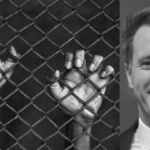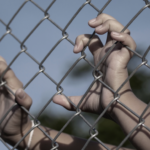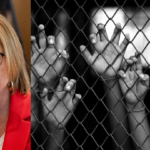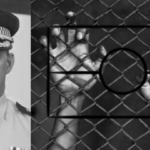Australian Governments Are Increasingly Intent on Imprisoning Children
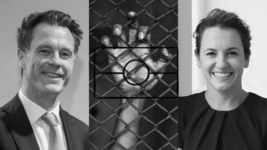
The latest NSW custody figures were released on Thursday, 14 August 2025, and there’s been a 34 percent surge in youths being imprisoned over the last two years, and at present, 71 percent of these kids are on remand, or have been locked up prior to being found guilty, and this scenario is currently playing out in multiple jurisdictions nationwide.
Two hundred and thirty four 10- to 17-year-olds were detained in the June quarter 2025 in NSW, and 140 of them, or 60 percent, were First Nations kids. Yet, Indigenous children only account for 8 percent of this state’s overall populace, and this overrepresentation of Aboriginal youths in the NSW child prison system is replicated, more starkly at times, in all Australian jurisdictions.
For the NSW Labor government, these figures represent the successful application of a targeted crackdown on youth crime and bail launched by NSW premier Chris Minns in March last year, and the Aboriginal Legal Service NSW/ACT went on to report 12 months later that 88 percent of those captured by the reforms and 90 percent of those locked up as a result were First Nations kids.
Minns legislative attack on youths, and in particular, Indigenous kids, marked a turning point, as the southeastern states don’t usually run youth crime drives like this. Victoria then commenced its own crackdown on kiddie crime in August 2024. And while there’s nothing unusual about targeting kids for gaol in Queensland and the Northern Territory, those jurisdictions have shifted into overdrive.
The NSW premier preceded his announcement of his youth crime crackdown by ensuring it had nothing to do with raising the age that a child can be imprisoned in NSW from 10 years old, which is reflective of the damaging nature of the Australian youth justice system, and this mass incarceration of Indigenous kids, is systematically undermining the power of First Nations in general.
Engineering future clients of corrections
“Premier Chris Minns’ youth bail laws are doing exactly what he designed them to do, locking up more children and young people for longer, before they have even been found guilty of anything. This is not justice, it is demonic political theatre at the expense of vulnerable young people,” said NSW Greens MLC Sue Higginson in a statement on Thursday morning.
Higginson adds that locking up kids is the “most criminogenic thing” that can be done, which means sticking kids in gaol makes them much more likely to commit more crime and end up back in prison. The Greens justice spokesperson’s assertion is backed up by the evidence of experts and major party pollies are well aware of these facts. The difference being is Higginson seeks to improve the situation.
The NSW Labor crackdown had a focus on 14- to 17-year-old teens, who are on bail and living in regional NSW. The new law ensures that those on conditional release for alleged motor theft or break and enter offences, who reoffend in a similar way are then bail refused. And as the resulting figures reveal this approach to youth crime appeared to predominantly target Aboriginal teenagers.
“We warned that these laws would disproportionately target First Nations young people and fuel a surge in youth imprisonment, and the data confirms it,” Higginson added.
“Sixty percent of the young people in detention are First Nations, and most are being held on remand. That means they are being torn away from family, community and Country before they have been found guilty or convicted of charges.”
Reverting to torture
The second half of 2024 saw the Country Liberal Finocchiaro ministry voted into office in the Northern Territory in August and the Liberal National Crisafulli government taking office the following month in Queensland, both on the back of tough-on-crime election campaigns promising to crack down on lawbreakers, especially those who are children.
Crisafulli rode into office on the back of his “adult crime, adult time” policy, which resulted in the “making Queensland safer laws” that initially passed last December and saw youths who commit any of 13 serious criminal offences facing the same penalties as adults. So, a kid can be sentenced to life imprisonment in certain circumstances. This was expanded to 20 more crimes in April this year.
The NT government has launched an “us against them” law-and-order drive in respect of the jurisdiction’s Aboriginal population, which accounts for 26 percent overall. This again has a focus on youth. And NT chief minister Lia Finocchiaro has just overhauled the Youth Justice Act 2005 (NT), after already hitting kids with harsher bail laws, including reinstating breach of bail, last year.
The youth justice reforms passed on 31 July 2025 have seen the removal of the principle that prison be a punishment of last resort for kids, the reinstatement of spit hood use, it provided authorities with the ability to set dogs on youth inmates when an emergency breaks out at a child prison, and the full criminal histories of youths are now before judges at time of sentencing.
“To bring spit hoods back, especially for use on children, is a grotesque failure of leadership. It will not prevent harm. It is harm,” said National Network spokesperson Debbie Kilroy. “The removal of the principle that detention must be a last resort for children flies in the face of national and international human rights obligations, including the Convention on the Rights of the Child.”
“Many of the children who appear before the courts are themselves victims: victims of violence, poverty, neglect, racism and state failure,” the lawyer added, in a statement at the time the laws were being passed. “They are not born ‘offenders’, they are criminalised by a system that was never designed to protect them.”
Deeper implications
“What you see played out here is no different to what has been playing out in Gaza and in other parts,” Uncle Wayne “Coco” Wharton said at a rally on Gadigal land in Sydney’s inner suburb of Waterloo in February. “They try and attack our children. They think they break us by attacking our kids. When our kids defend themselves or they look for safety, they attack them more.”
“I just came back from Western Australia and the traffic police over there, the ones that patrol the trains and the bus stations, walk around like they’re on steroids and pick on our kids going home,” the Kooma man added. “There system is to break our kids. In Queensland, a 10-year-old kid can be picked up and sentenced to life.”
Wharton was speaking at the 21 year anniversary protest marking the death in police custody of 14-year-old Gomeroi boy TJ Hickey, who was chased to his death, whilst riding his bike, by NSW police officers driving vans, on 14 February 2004. The boy was being pursued by a paddy wagon that actually mounted a footpath to follow him down an alleyway, and he was impaled trying to escape.
Hickey had not committed any crime. Six hundred and six First Nations individuals have died in the custody of Australian police or corrections officers since the Royal Commission into Aboriginal Deaths in Custody handed down its 339 recommendations on how to bring this crisis to an end on 15 April 1991.
Justice Not Jails spokesperson Stephen Enciso told Sydney Criminal Lawyers this week that what Uncle Coco was warning about is happening in the Northern Territory, as the Finocchiaro ministry is enacting laws that increase the likelihood that First Nations kids, as young as 10, will be sent to prison as a primary punishment, and this is all about securing land for future development.
“Aboriginal children are the future Traditional Owners, so if you break Aboriginal people in body and in spirit at a younger age, then they will be too traumatised when they grow up to mount effective opposition to future development projects,” Enciso explained.
“So, in effect, it’s going to be easier to exploit Aboriginal land,” the academic underscored. “That material motivation is arguably what is reflecting some of the overt racism in some of the CLP policies.”


